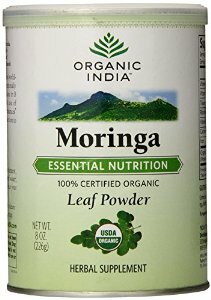
Measles, and mumps, and whooping cough – oh my!
For those wary of vaccines, skepticism comes with a price . Measles, mumps, and whooping cough (pertussis) are vaccine-preventable diseases that are flaring across the United States. In August there was a measles outbreak in Texas where 25 people were infected, at least 15 of who attended Terri Copeland Pearsons’ Eagle Mountain International Church in Newark, Texas. A six-week-old baby from Orlando, Florida died from whooping cough in April. His death marked Orange County’s first death attributed to whooping cough in 20 years. There has been a resurgence of mumps cases in areas where people live in close proximity to each other, for example school campuses or Orthodox Jewish communities.
Dr. Richard Bungiro, a lecturer in Biology Molecular Microbiology & Immunology at Brown University, attributes “complacency and Internet-fueled misinformation” to the rise in vaccine-preventable diseases.
Complacency and misinformation come from many places. On the one hand, the overarching success of vaccines ironically leads parents and doctors to not vaccinate children because the threat of whooping cough, for example, is not imminent. According to the Centers for Disease Control, “the MMR (mumps, measles, and rubella) vaccine is the safest protection you can give your child against measles.” Whooping cough cases are down more than 80% since the days before the vaccine, and the high two-dose childhood vaccination for mumps reduced disease rates by 99%. On the other hand, fear has shifted from the diseases to the vaccines themselves.
Bungiro said: “Others fall victim to charismatic, but dangerously misinformed celebrities like Jenny McCarthy. Since there is little quality control of information in the media, and Jenny McCarthy is by her nature an attention-seeker, her words and those of her followers often drown out the scientists, physicians and public health figures who actually know what they’re talking about.”
Jenny McCarthy, soon-to-be of The View, has famously advocated against vaccinations claiming that they lead to autism. She in 2012 that she believes “vaccinations triggered” her son’s autism. The study she used to support her position was entitled “Influence of pediatric vaccines on amygdala growth and opioid ligand binding in rhesus macaque infants: A pilot study.” Mary Elizabeth Williams of Salon.com pointed out that Thimerosal, the ingredient “at the heart of the autism debate” and at the center of the study, was removed from most pediatric vaccines by 2001. McCarthy’s son was born in 2002 and diagnosed with Autism in 2005.
Terri Copeland Pearsons, leader of the Eagle Mountain International Church in Texas, has also raised doubts regarding children and vaccinations. Pearsons, however, changed her position and recently held five vaccination clinics due to an outbreak of measles that infected more than 20 members in her congregation. She said: “The concerns we have had are primarily with very young children who have family history of autism and with bundling too many immunizations at one time…Furthermore, the new MMR vaccination is without thimerosal (mercury), which has also been a concern to many.”
The suspicion raised by such an authoritative figure is dangerous, especially to unvaccinated children. For congregations who look to Mrs. Copeland for guidance, planting the seed of doubt can be enough to choose not inoculate a child.
Bungiro said: “Children are now paying the price. There is absolutely no scientific validity to the ‘too many vaccines at once’ position; in fact, while today’s childhood vaccines provide protection against a greater number of diseases, they actually contain many fewer antigens (proteins that stimulate the immune system) than the vaccines I received as a child in the early 1970s.”
Children are more vulnerable to vaccine-preventable diseases according to Dr. Bungiro. The baby who died in Orlando was too young to be vaccinated, but not all of the infant’s family members’ vaccinations were up-to-date. Dr. Bungiro explained that children’s susceptibility is particularly high in infants, especially those under a year old who cannot be vaccinated. Therefore, “such children rely on indirect protection (‘herd immunity’) from the rest of us. That’s what makes the ‘personal choice’ argument against vaccines break down – if you don’t get vaccinated, you aren’t just risking your own health, but also the health of others.”
In discussing alternative medicines such as herbs, oils, and teas, Dr. Bungiro explained both their cultural importance and their significance as a source of knowledge that has led to modern medical treatments. Utilizing alternative medicines in lieu of antibiotics, however, is precarious. He said that “in a situation where an antibiotic or vaccine is clearly indicated, I feel that it is inadvisable to use an unproven alternative medicine in its place. In the case of an adult making such a choice on behalf of a child whose illness could be prevented or cured using conventional medicine, I believe that it is negligent and in certain cases criminal.”
There will be those who listen to the authoritative but misguided voice of the ‘man behind the curtain’ and suffer the dire consequences of disease. Others will follow the irrefutable science of immunology and plan a path to health.
By:



